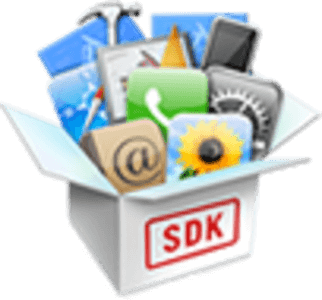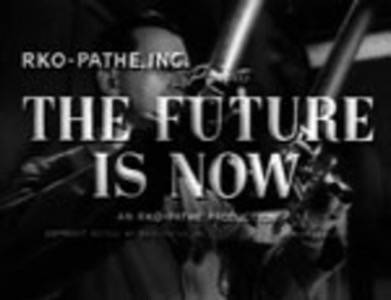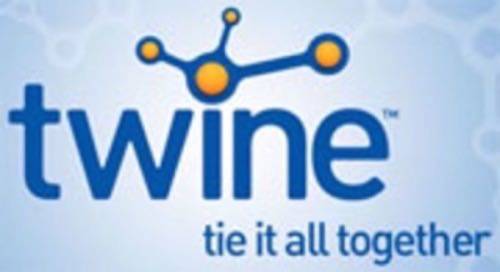Here is a summary of the week’s Web Tech action on ReadWriteWeb. It’s been a busy week, with a RWW interview with Facebook’s Mark Zuckerberg, iPhone analysis aplenty, a special look at Web visualization, reviews of Semantic Apps Twine and Reuters Open Calais, and much more. And don’t forget to click through to our website and leave a comment on our posts, for a chance to win a daily $30 Amazon gift voucher.

For those of you reading this via our website, note that you can subscribe to the Weekly Wrapups, either via the special RSS feed or by email.
Web Trends
Mark Zuckerberg on Data Portability: An Interview
Facebook founder Mark Zuckerberg was at SXSW doing press interviews this week and Marshall Kirkpatrick went along to find out Mark’s thoughts on data portability. There’s a big web out there that would like to give and take user data in and out of Facebook. We focused on data portability in our conversation with Zuckerberg and got a fairly clear picture of his views on the subject. Zuckerberg told us that he believes data portability is an important direction the web is moving in, that fundamental openness between sites is inevitable – but that Facebook is focusing on questions of privacy and user control as its contribution to that movement. That may be a fair, if frustrating, position for Facebook to take. It may also leave them on the sidelines of larger conversations.

Why Apple Will Dominate Next Gen Computing
Last week Steve Jobs took the stage at the Apple Town hall meeting and announced
two major things for the iPhone: 1) support for Microsoft Exchange and 2) the iPhone SDK.
The Exchange support was a relatively unexpected move, but in retrospect it makes perfect sense.
In order to unseat Blackberry as the number one wireless player in the US, Apple needed to have an enterprise story. What’s more, Apple has realized that the days when people carried two phones are over.

12 Future Apps For Your iPhone
With the new iPhone SDK, it’s just a matter of
time before we see a wave of new applications. We expect a lot of popular web 2.0 apps to offer an iPhone version.
Native Twitter, Facebook and Flickr clients for iPhone will run faster than their in-browser
versions and will take advantage of the impressive Apple UI libraries. But there is an entirely new breed of applications also coming to iPhone.
These apps simply would not be possible without a device like iPhone.

The major theme
of this new wave of apps will be blending of the physical and digital worlds, using iPhone as the bridge.
In this post we take a look at what’s coming.
The Best Tools for Visualization
Visualization is a technique to graphically represent sets of data. When data is large or abstract, visualization can help make the data easier to read or understand. There are visualization tools for search, music, networks, online communities, and almost anything else you can think of. Whether you want a desktop application or a web-based tool, there are many specific tools are available on the web that let you visualize all kinds of data. In this post we list some of the best.

User Interfaces Rapidly Adjusting to Information Overload
People who in the next few years solve big problems in Information Overload are going to be very important, and some of them are going to be UI and UX (user experience) designers.

German ISP T-Online demonstrated a big multi-touch screen right out of Minority Report at the CeBIT conference in Hannover this week (see this and other videos below). Many other designers are working on variations on that theme. Other designers still are aiming to bring game-like interfaces to other data-centric experiences. What would you like to see in interface design?
Mobile Web Use Growing Faster than Ever
Wireless devices are everywhere these days. Wi-Fi hotspots are are popping up in more places and aircards protrude from the laptops of the mobile workforce. Computing is changing, too. Cloud computing will move applications and storage away from the desktop to remote servers. If anything, this drive to push data off the PC and onto the web has been in some part driven by the increasing mobility of internet users. Mobile access to the web is pushing internet adoption rates up while also providing more people the opportunity to work away from a stationary PC. So who is going mobile? Some new studies from PEW Internet & American Life Project and iPass shed some light on this topic.

SEE MORE WEB TRENDS COVERAGE IN OUR TRENDS CATEGORY
Web Products
YouTube’s Could Be the Best New Platform Yet
The video uploading platform announced by YouTube this week may not have been what many pundits expected but it could mark a major turning point for both YouTube and thousands of other sites around the web.

By allowing website owners to combine an on-site video publishing option for their users with the huge number of people looking to discover new content on YouTube, the platform will create a mutually beneficial feedback loop that will breathe new life into both YouTube and the web at large. It’s also got potential to show up all the other big platform plays we’ve seen to date.
OpenSocial Beta Apps Go Live on MySpace
If you’ve been wondering how the OpenSocial platform will look in MySpace, its biggest implementation, today’s the day you can take a first look. Right on schedule the first batch of apps go live today, one month after the platform was opened to all developers democratically.

There’s a Platform smarts arms-race underway between MySpace and Facebook, each implementing smarter and smarter policies on a regular basis. MySpace, and thus OpenSocial, could produce some dazzling applications.
And Nerds Became Kings: Yahoo! to Announce Semantic Web Support
This week Yahoo! announced that it will be indexing Semantic Web and Microformats markup from around the web and will use that information to display more structured search results. We asked last month how vulnerable Google is in search and the leveraging of standards-based structured data may be the most obvious approach to improving on the search industry’s current best practices. As Tim Berners-Lee said just weeks ago the time for the semantic web is now.

Reuters Open Calais Update: Apps Progress, Interview
A month ago we wrote about Reuters launching an API called Open Calais, a technology that “does a semantic markup on unstructured HTML documents – recognizing people, places, companies, and events.” I mentioned Calais in my Media08 presentation last week entitled Web Technology Trends for 2008 and Beyond. It generated interest in the media-focused audience I presented to, so in this post we follow up with Reuters and ask what progress is being made. Specifically we look at what apps have been built so far on Calais and get feedback from Reuters’ Tom Tague.

Twine Disappoints After Semantic Web Hype
Twine is the most hyped semantic app of the season and recently opened up for some press previews. General availability of this smart, social bookmarking and research tool may come in a matter of weeks.

If that’s the case, it will probably be too soon, according to Marshall Kirkpatrick’s review this week. Twine has some major shortcomings that Marshall thinks are going to drastically hinder the service’s adoption. Perhaps unsurprisingly, those shortcomings come down to usability and performance. Hopefully these problems will be resolved, but it isn’t going to be easy.
SEE MORE WEB PRODUCTS COVERAGE IN OUR PRODUCTS CATEGORY
Digital Lifestyle News at last100
This week there’s been a fair bit of action in the Internet TV sector, with announcements from Hulu, Joost and TiVo. Our network blog last100 covered the action.

This week Hulu – the online video project from Newscorp and NBC/Universal, with participation by Sony, MGM and others (our previous coverage) – launched to the general public in the United States. It’s been in private beta nearly five months, wrote Dan Langendorf at last100. In other news, Joost, the Internet TV service, is making live-streaming video available through an update to its desktop client. Also TiVo keeps improving its “television services” offering. This time, TiVo is adding YouTube to its ever-expanding lineup.
AltSearchEngines
Over on AltSearchEngines, as usual the world of alternative search engines was a mix of the serious (Librarians use Exalead) and the humorous (Japanese search engine Goo). Also featured were People search engine BuddyFetch, Visual search engine SearchMe, Social search engine andUNITE and Recommendation engine Clueray.

This Monday-Thursday will be the SES New York conference, and Kevin Ryan and ASE editor Charles Knight will be serving on a panel featuring alternative search engines EveryZing, Healthpricer, OrganizedWisdom, SurfCanyon, and Retrevo. AltSearchEngines will be live blogging the whole conference.
That’s a wrap for another week! Enjoy your weekend everyone.

















